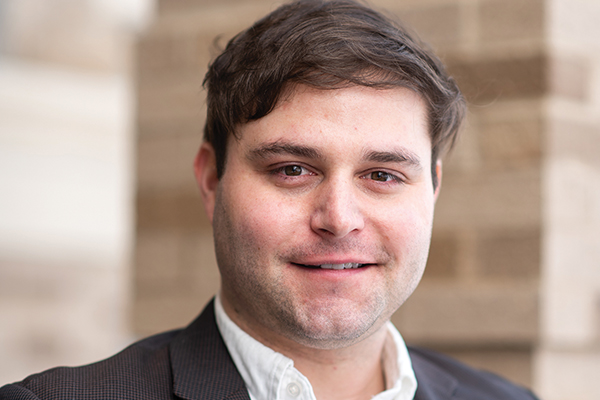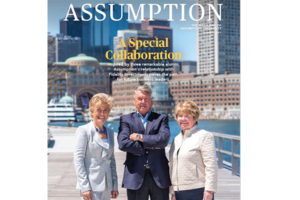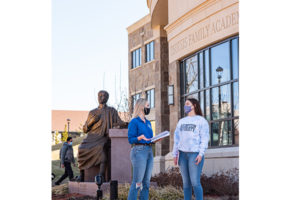
As Catholic institutions across America move toward programs in the science, technology, engineering, and mathematics (STEM) fields, it is important to preserve schools of thought in the humanities while drawing connections to post-modernist epistemology. If we, as faculty, can move away from the notion that these are contradictory schools of thought, we can provide a unique interscholastic identity for our students and institution; a judicious call to action as we move toward reorganization of the institution. In June, I had the opportunity to serve as a faculty fellow at the 2019 Summer Colloquy on Faith and Intellectual Life and shared my thoughts on how faculty could continue to play a role in preserving the Catholic intellectual tradition while meeting the new demands of an emerging marketplace.
We can draw a parallel to our founder, the Venerable Father Emmanuel d’Alzon, who fostered the intellectual spirit of the academic program of a Catholic university. Within this academic program, Fr. d’Alzon identified faculty of medicine, or what can now be considered modern STEM fields, to be most in need of theology; in this light, theology is viewed as the foundation of the Catholic academic program. It was Fr. d’Alzon’s hope that a reciprocal structure would strengthen the Catholic academic program by supporting STEM fields and search for “new insights” while, in turn, our brothers and sisters in theology seek from them “invaluable aid and essential data.” As 21st-century leaders in Catholic higher education, we share the opportunity to resist siloed materialism and move toward an intellectual life that fosters a central understanding and identity across disciplines. This can be accomplished by continuing our work as practitioners of Assumption’s developed mission.
As faculty, we have the opportunity to reflect on the central tenets of our mission and appraise our individual stewardship as well as the stewardship we share as a whole. By bridging our philosophies through a shared mission, we can strengthen the connection between the humanities and emerging STEM disciplines while preserving the Catholic intellectual tradition. Consequently, a new curiosity among faculty and our students may help strengthen our cultural identity as an institution in three ways.
First, the identification of shared philosophies across the humanities and STEM disciplines may provide clarity for our students to better understand the application of our mission in their academic and professional endeavors.
Second, a Catholic institution comprised of traditional and nontraditional disciplines can best market and recruit students when there is the presence of one shared identity; securing how STEM students fit with this identity should be a priority, and it can be argued that Catholic institutions have an advantage over secular counterparts given their longitudinal commitment to community partnerships and a deeply rooted mission.
Last, continued conversations on shared philosophies provide a chance for faculty to assess interdisciplinary opportunities. For example, faculty can leverage existing institutional structures to identify and disseminate shared philosophies and how students can employ the Assumption mission to their academic and professional endeavors; COMPASS linkage courses, women’s studies, and global studies programs are three examples of where this work can continue.


